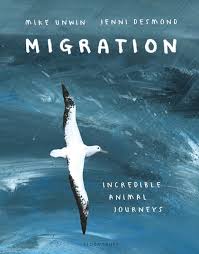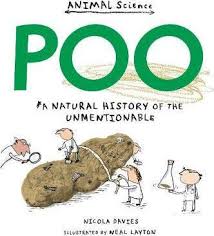I haven't been keeping up with booklists and award lists this year (there's a few things I haven't been keeping up with this year it seems), but then Lisa at ANZLitlovers alerted me to the 2019 International Dublin Literary Award Longlist. And I noticed that even I have read a few. Of course many more are on my TBR. I'm putting this Listmania list out there to help push shame me into picking up those books.
The New Animals by Pip Adam
Stay With Me by Ayọ̀bámi Adébáyọ̀
4321 by Paul Auster
Beartown / The Scandal by Fredrik Backman, translated from the Swedish by Neil Smith
Mrs Osmond by John Banville
The Invisible Life of Euridice Gusmao by Martha Batalha, translated from the Portuguese by Eric M. B. Becker
A Line Made by Walking by Sara Baume
The Trick by Emanuel Bergmann
The 7th Function of Language by Laurent Binet, translated from the French by Sam Taylor
The Heart’s Invisible Furies by John Boyne
The Greatest Hits of Wanda Jaynes by Bridget Canning
A Long Way From Home by Peter Carey
Marlborough Man by Alan Carter
Song of the Sun God by Shankari Chandran
Dragon Springs Road by Janie Chang
Brother by David Chariandy
What We Lose by Zinzi Clemmons
Terra Nullius by Claire G. Coleman
The Last Beothuk by Gary Collins
Acts of Allegiance by Peter Cunningham
The Life to Come by Michelle de Kretser
In the Distance by Hernan Diaz
Her by Garry Disher
Smile by Roddy Doyle
A Vineyard in Andalusia /The Vineyard by Maria Dueñas, translated from the Spanish by Nick Caistor & Lorenza García
Special Envoy by Jean Echenoz, translated from the French by Sam Taylor
Manhattan Beach by Jennifer Egan
American War by Omar El Akkad
Compass by Mathias Énard, translated from the French by Charlotte Mandell
Go, Went, Gone by Jenny Erpenbeck, translated from the German by Susan Bernofsky
Decline and Fall on Savage Street byFiona Farrell
First Person by Richard Flanagan
This Is How It Always Is by Laurie Frankel
The Invented Part by Rodrigo Fresán, translated from the Spanish by Will Vanderhyden
History of Wolves by Emily Fridlund
Return to the Dark Valley by Santiago Gamboa, translated from the Spanish by Howard Curtis
Here in Berlin by Cristina Garcia
Dreams Beyond the Shore by Tamika Gibson
There Your Heart Lies by Mary Gordon
Little Sister by Barbara Gowdy
The Road to Shenzhen by Huang Guosheng
How to Stop Time by Matt Haig
Exit West by Mohsin Hamid
A House in Norway by Vigdis Hjorth, translated from the Norwegian by Charlotte Barslund
The Sparsholt Affair by Alan Hollinghurst
Eleanor Oliphant is Completely Fine by Gail Honeyman (see my review)
Sleeps Standing Moetu by Witi Ithimaera, translated from Maori by Hemi Kelly
Darker by E.L. James
The Stone Sky by N.K. Jemisin
Baby by Annaleese Jochems
First Snow, Last Light by Wayne Johnston
The Music Shop by Rachel Joyce
Spaceman of Bohemia by Jaroslav Kalfař
English Animals by Laura Kaye
You Should Have Left by Daniel Kehlmann, translated from the German by Ross Benjamin
Of Darkness by Josefine Klougart, translated from the Danish by Martin Aitken
The Leavers by Lisa Ko
The Harvest of Chronos by Mojca Kumerdej, translated from the Slovenian by Rawley Grau
Ferocity by Nicola Lagioia, translated from the Italian by Antony Shugaar
The Choke by Sofie Laguna
A Poison Apple by Michel Laub, translated from the Portuguese by Daniel Hahn
The Changeling by Victor LaValle
Pachinko by Jin Min Lee
The Barrowfields by Phillip Lewis
Escape From Sunset Grove by Minna Lindgren, translated from the Finnish by Kristian London
The End of Eddy by Edouard Louis, translated from the French by Michael Lucey
The History of Bees by Maja Lunde, translated from the Norwegian by Diane Oatley
Midwinter Break by Bernard MacLaverty (see my review)
The Temptation to be Happy by Lorenzo Marone, translated from the Italian by Shaun Whiteside
All Our Wrong Todays by Elan Mastai
The Ninth Hour by Alice McDermott
Reservoir 13 by Jon McGregor
The Blood Miracles by Lisa McInerney
Ithaca by Alan McMonagle
Gather the Daughters by Jennie Melamed
The Forensic Records Society by Magnus Mills
Elmet by Fiona Mozley
Like a Fading Shadow by Antonio Muñoz Molina, translated from the Spanish by Camilo A. Ramirez
The Sixteen Trees of the Somme by Lars Mytting, translated from the Norwegian by Paul Russell Garrett
Little Fires Everywhere by Celeste Ng
Mirror, Shoulder, Signal by Dorthe Nors, translated from the Danish by Misha Hoekstra
A Book of American Martyrs by Joyce Carol Oates
The Dead House by Billy O’Callaghan
Mama’s Maze by Agnes Ong
Incredible Floridas by Stephen Orr
Heretics by Leonardo Padura, translated from the Spanish by Anna Kushner
Uncertain Weights and Measures by Jocelyn Parr
Next Year, For Sure by Zoey Leigh Peterson
Reincarnation Blues by Michael Poore
No One is Coming to Save Us by Stephanie Powell Watts
The Bedlam Stacks by Natasha Pulley
The Death of the Perfect Sentence by Rein Raud, translated from the Estonian by Matthew Hyde
Through the Lonesome Dark by Paddy Richardson
White Bodies by Jane Robins
Son of a Trickster by Eden Robinson
Conversations With Friends by Sally Rooney
To Die in Spring by Ralf Rothmann, translated from the German by Shaun Whiteside
The Ministry of Utmost Happiness by Arundhati Roy
Breathe by Beni Rusani
The Golden House by Salman Rushdie
Idaho by Emily Ruskovich
The Bridge Troll Murders by Sheldon Russell
No One Can Pronounce My Name by Rakesh Satyal
Lincoln in the Bardo by George Saunders
Adua by Igiaba Scego, translated from the Italian by Jamie Richards
Tench by Inge Schilperoord, translated from the Dutch by David Colmer (currently stalled halfway, it's really short, maybe I should pick it up again)
See What I Have Done by Sarah Schmidt
Fever Dream by Samantha Schweblin, translated from the Spanish by Megan McDowell
Taboo by Kim Scott
The Tea Girl of Hummingbird Lane by Lisa See
A Boy in Winter by Rachel Seiffert
Kruso by Lutz Seiler, translated from the German by Tess Lewis
Home Fire by Kamila Shamsie
The Woman in the Castle by Jessica Shattuck
House of Spies by Daniel Silva
To the Back of Beyond by Peter Stamm, translated from the German by Michael Hofmann
My Cat Yugoslavia by Pajtim Statovci, translated from the Finnish by David Hackston
The Necessary Angel by C.K. Stead
The Rise and Fall of D.O.D.O. by Neal Stephenson & Nicole Galland
Anything is Possible by Elizabeth Strout
My Absolute Darling by Gabriel Tallent
Monte Carlo by Peter Terrin, translated from the Dutch by David Doherty
The Hate U Give by Angie Thomas (see my review)
Naondel ; the Red Abbey Chronicles by Maria Turtschaninoff, translated from the Swedish by A. A. Prime
Temporary People by Deepak Unnikrishnan
They Know Not What They Do by Jussi Valtonen, translated from the Finnish by Kristian London
Borne by Jeff VanderMeer
And Fire Came Down by Emma Viskic
Radiant Terminus by Antoine Volodine, translated from the French by Jeffrey Zuckerman
Sing, Unburied, Sing by Jesmyn Ward
Clear to the Horizon by Dave Warner
Girlcott by Florenz Webb Maxwell
The Consequences by Niña Weijers, translated from the Dutch by Hester Velmans
When the English Fall by David Williams
Tin Man by Sarah Winman
Lost in September by Kathleen Winter
The Resurrection of Joan Ashby by Cherise Wolas
The Impossible Fairytale by Han Yujoo, translated from the Korean by Janet Hong
The Book of Joan by Lidia Yuknavitch
The Image Interpreter by Zoran Živković, translated from the Serbian by Randall A. Major
7/141





















